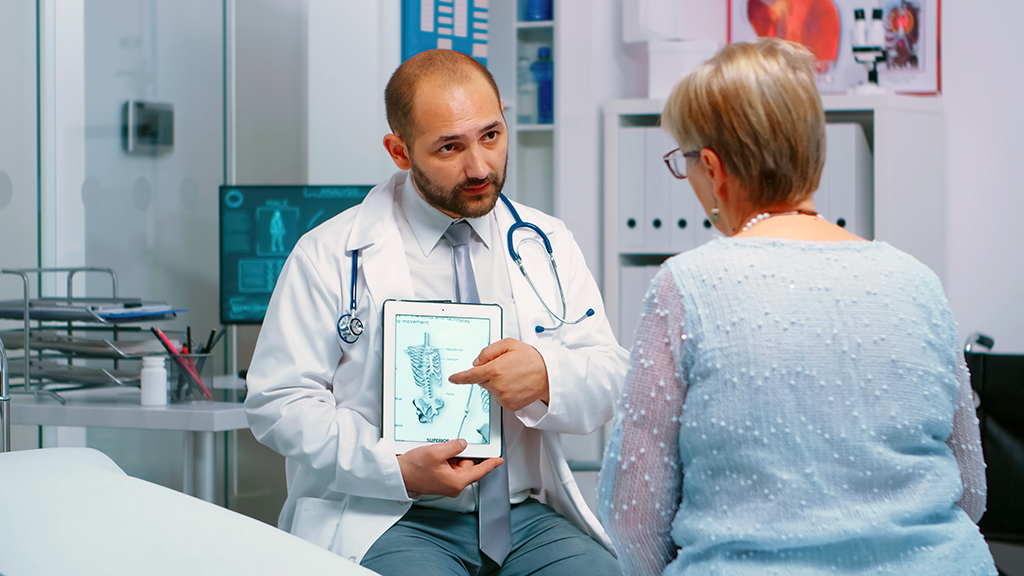BONE DENSITY SCAN

What is a Bone Density Scan or DEXA Scan?
Osteoporosis is a common bone disease that causes bone to become weak. This weakness can lead to fractures of the spine, hip, ankle, and wrist from simple falls which might not have resulted in a fracture in someone with normal bones. A bone density scan, is an enhanced form of x-ray technology called dual-energy x-ray absorptiometry. It is also know as a DEXA scan, and is the most accurate method available to measure the bone mineral density of bones, to diagnose osteoporosis and to evaluate your risk for fracture.
A DEXA scan is a quick, painless procedure that measures the bone density of your lower spine and hips. If the test reveals osteoporosis, your doctor can prescribe a program to increase bone strength and reduce fracture risk.
How do I prepare for my Bone Density Scan?
There are no food restrictions. However, do NOT take calcium supplements for at least 24 hours prior to your exam.
If you have had a bone density scan done in the past, it is important to have the new scan done in the same position so that an accurate comparison can be made. Please bring copies of any prior bone density scans and reports with you, or have the reports faxed to our office.
If you have been injected with contrast for a recent CT scan, have had a recent nuclear medicine scan, or if you’ve recently had a Barium study, you may have to wait 10-14 days before having your Bone Density scan. This is because CT contrast, nuclear medicine tracers, and barium can all interfere with the bone density scan, and could potentially lead to an inaccurate result.
How is the Scan performed?
The scan takes about 15 minutes and is painless.
- You will be asked to undress and put on a hospital gown.
- You will be asked to lie on an x-ray table and the technologist will position your legs with a sponge support, so that your pelvis and lower spine are aligned properly.
- The x-ray tube will pass over your body taking measurements.
What are the limitations of a Bone Density Scan?
Bone density scanning is of limited use for people with a spinal deformity such as scoliosis or for patients that have had previous spinal surgery or bilateral hip replacements. Vertebral compression fractures or osteoarthritis may interfere with the accuracy of the test.
Who interprets the results and when are they available?
A radiologist will interpret the results of your scan. A written report will be sent to your doctor, usually within 24 hours.
Will my insurance pay for the test?
Medicare currently pays for a bone density study every 2 years. For other insurance plans, please check with your insurance company.
Please call 203.869.6220 to schedule an appointment.
